Audi Q3 vs Hyundai Santa Fe - Differences and prices compared
Compare performance (272 HP vs 288 HP), boot space and price (38200 £ vs 51200 £ ) at a glance. Find out which car is the better choice for you – Audi Q3 or Hyundai Santa Fe?
Costs and Efficiency:
Price and efficiency are often the first things buyers look at. Here it becomes clear which model has the long-term edge – whether at the pump, the plug, or in purchase price.
Audi Q3 has a clearly perceptible advantage in terms of price – it starts at 38200 £ , while the Hyundai Santa Fe costs 51200 £ . That’s a price difference of around 12986 £.
Fuel consumption also shows a difference: Audi Q3 manages with 1.70 L and is therefore clearly more efficient than the Hyundai Santa Fe with 3.80 L. The difference is about 2.10 L per 100 km.
As for electric range, the Audi Q3 performs decisively better – achieving up to 119 km, about 65 km more than the Hyundai Santa Fe.
Engine and Performance:
Under the bonnet, it becomes clear which model is tuned for sportiness and which one takes the lead when you hit the accelerator.
When it comes to engine power, the Hyundai Santa Fe has a hardly perceptible edge – offering 288 HP compared to 272 HP. That’s roughly 16 HP more horsepower.
In acceleration from 0 to 100 km/h, the Audi Q3 is clearly quicker – completing the sprint in 5.70 s, while the Hyundai Santa Fe takes 8 s. That’s about 2.30 s faster.
In terms of top speed, the Audi Q3 performs a bit better – reaching 240 km/h, while the Hyundai Santa Fe tops out at 196 km/h. The difference is around 44 km/h.
There’s also a difference in torque: Audi Q3 pulls barely noticeable stronger with 400 Nm compared to 380 Nm. That’s about 20 Nm difference.
Space and Everyday Use:
Beyond pure performance, interior space and usability matter most in daily life. This is where you see which car is more practical and versatile.
Seats: Hyundai Santa Fe offers noticeable more seating capacity – 7 vs 5.
In curb weight, Audi Q3 is to a small extent lighter – 1635 kg compared to 1920 kg. The difference is around 285 kg.
In terms of boot space, the Hyundai Santa Fe offers distinct more room – 711 L compared to 488 L. That’s a difference of about 223 L.
In maximum load capacity, the Hyundai Santa Fe performs distinct better – up to 2032 L, which is about 646 L more than the Audi Q3.
When it comes to payload, Hyundai Santa Fe slightly takes the win – 665 kg compared to 535 kg. That’s a difference of about 130 kg.
Who wins the race in the data check?
The Audi Q3 sits well ahead of its rival in the objective data comparison.
This result only shows which model scores more points on paper – not which of the two cars feels right for you.
Costs and Consumption
View detailed analysis
Engine and Performance
View detailed analysis
Dimensions and Body
View detailed analysis
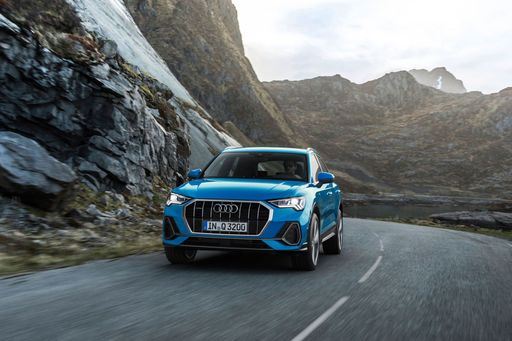
Audi Q3
Audi Q3
The Audi Q3 feels like a grown-up compact SUV with premium polish and city-friendly agility, the sort of car that makes weekend escapes and daily commutes equally satisfying. Inside, you get quality materials and smart packaging that keep things practical without skimping on style, so it’s an easy pick for buyers who want luxury without the drama.
details
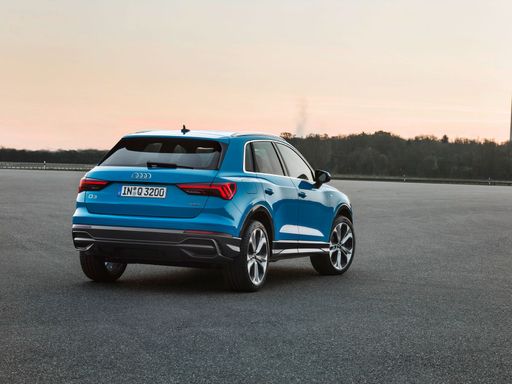
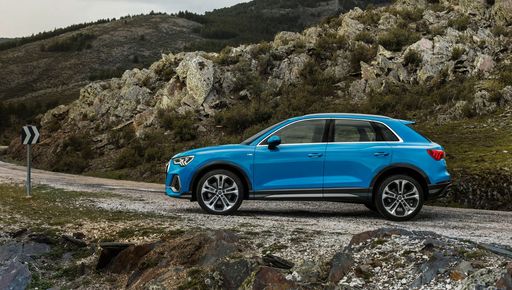
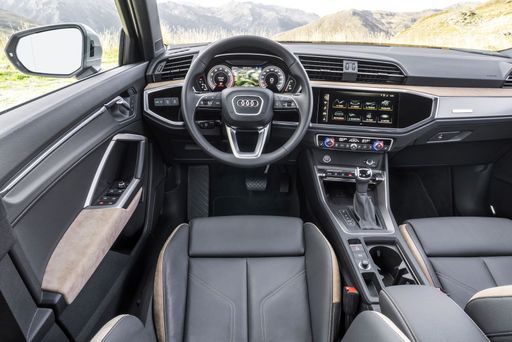
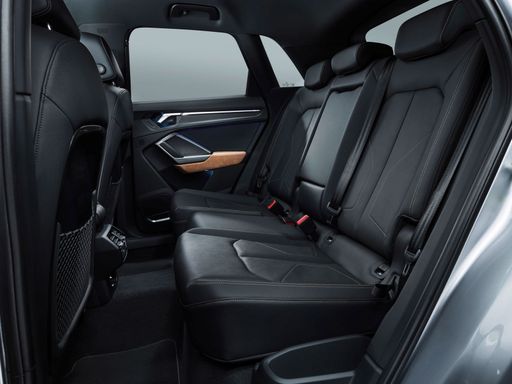
Hyundai Santa Fe
The Hyundai Santa Fe blends practical family friendliness with a hint of premium style, offering roomy, sensible packaging wrapped in modern, confident design. Inside it serves up comfortable seats, straightforward tech and a calm, composed ride that makes daily drives feel a little more grown up — a solid all‑rounder that doesn’t try to be flashy.
details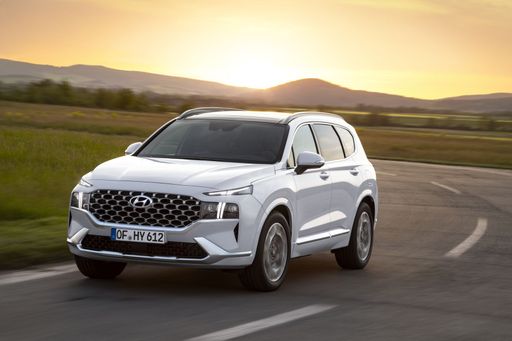
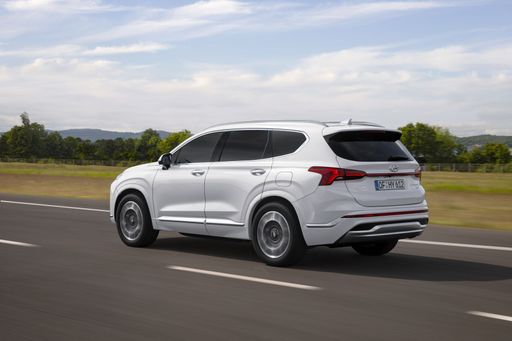

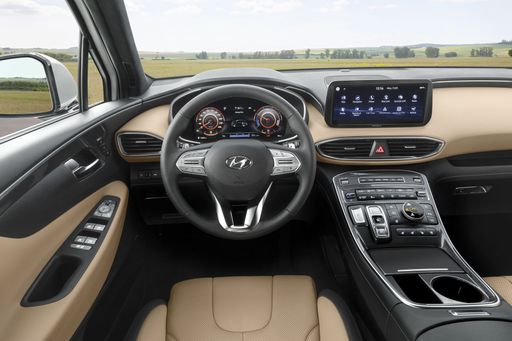
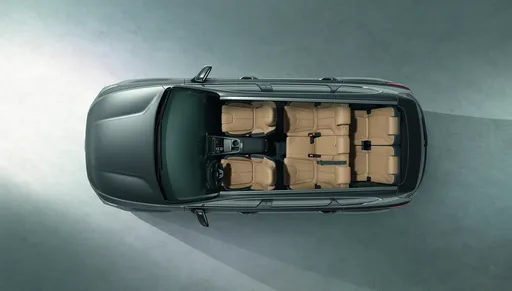
Costs and Consumption |
|
|---|---|
|
Price
38200 - 52900 £
|
Price
51200 - 58600 £
|
|
Consumption L/100km
1.7 - 8.6 L
|
Consumption L/100km
3.8 - 7.1 L
|
|
Consumption kWh/100km
-
|
Consumption kWh/100km
-
|
|
Electric Range
118 - 119 km
|
Electric Range
54 km
|
|
Battery Capacity
19.70 kWh
|
Battery Capacity
-
|
|
co2
39 - 195 g/km
|
co2
90 - 160 g/km
|
|
Fuel tank capacity
45 - 60 L
|
Fuel tank capacity
67 L
|
Dimensions and Body |
|
|---|---|
|
Body Type
SUV
|
Body Type
SUV
|
|
Seats
5
|
Seats
5 - 7
|
|
Doors
5
|
Doors
5
|
|
Curb weight
1635 - 1900 kg
|
Curb weight
1920 - 2165 kg
|
|
Trunk capacity
375 - 488 L
|
Trunk capacity
621 - 711 L
|
|
Length
4531 mm
|
Length
4830 mm
|
|
Width
1859 mm
|
Width
1900 mm
|
|
Height
1559 - 1601 mm
|
Height
1720 mm
|
|
Max trunk capacity
1196 - 1386 L
|
Max trunk capacity
1949 - 2032 L
|
|
Payload
505 - 535 kg
|
Payload
560 - 665 kg
|
Engine and Performance |
|
|---|---|
|
Engine Type
Petrol MHEV, Petrol, Plugin Hybrid, Diesel
|
Engine Type
Full Hybrid, Plugin Hybrid
|
|
Transmission
Automatic
|
Transmission
Automatic
|
|
Transmission Detail
Dual-Clutch Automatic
|
Transmission Detail
Automatic Gearbox
|
|
Drive Type
Front-Wheel Drive, All-Wheel Drive
|
Drive Type
Front-Wheel Drive, All-Wheel Drive
|
|
Power HP
150 - 272 HP
|
Power HP
239 - 288 HP
|
|
Acceleration 0-100km/h
5.7 - 9.2 s
|
Acceleration 0-100km/h
8 - 9.2 s
|
|
Max Speed
208 - 240 km/h
|
Max Speed
196 km/h
|
|
Torque
250 - 400 Nm
|
Torque
380 Nm
|
|
Number of Cylinders
4
|
Number of Cylinders
4
|
|
Power kW
110 - 200 kW
|
Power kW
176 - 212 kW
|
|
Engine capacity
1498 - 1984 cm3
|
Engine capacity
1598 cm3
|
General |
|
|---|---|
|
Model Year
2025
|
Model Year
2025
|
|
CO2 Efficiency Class
E, G, B
|
CO2 Efficiency Class
E, F, B
|
|
Brand
Audi
|
Brand
Hyundai
|
Is the Audi Q3 offered with different drivetrains?
The Audi Q3 is available as Front-Wheel Drive or All-Wheel Drive.




